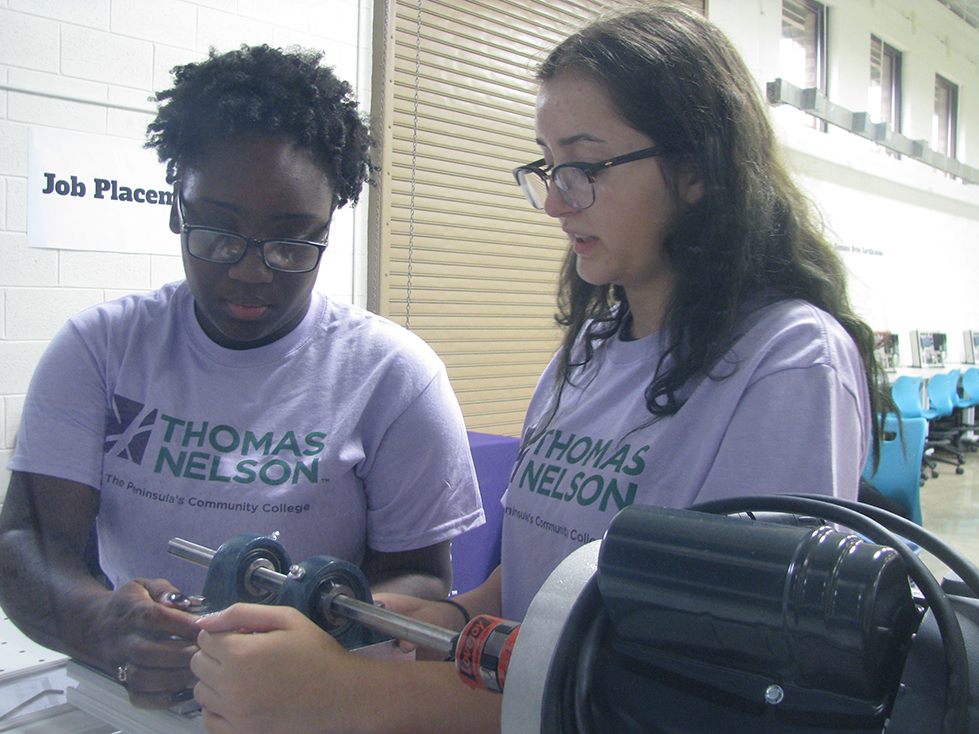Dual Enrollment Students Excel

Dual enrollment affords many benefits. Students in the program a few years back visited the Mechatronics Lab for hands on learning.
Senior year of high school can be a stressful and intimidating experience even in the best of times. This year, with the move to online classes because of the coronavirus pandemic, it was an especially trying time.
But for more than a dozen dual enrollment students at Thomas Nelson, that didn't stop them from becoming the valedictorian or salutatorian of their graduating class. The College has dual enrollment contracts with all five public schools districts on the Peninsula as well as three private schools. This year, at least seven dual enrollment students were at the top of their class, and another six were next in line. At four of the high schools, the valedictorian and salutatorian were dual enrolled at Thomas Nelson.
That's not much of a surprise to Kris Rarig, Thomas Nelson's vice president of Student Affairs.
"They are generally very strong students, and teachers who elect to teach a college-level course are also extremely strong educators," she said.
Rarig also noted "in order to participate in dual enrollment, students have to apply to the college, meet placement criteria either by taking the Virginia Placement Test, or by providing qualifying scores on the SAT or ACT."
Dual enrollment for high school students offers three big benefits: earning college credit while still in high school; saving money on those college classes as the cost as a high school student are significantly lower, and in many cases, the high school covers the cost; experiencing the college environment to see if it's a good fit.
The only drawback Rarig sees is those college classes are part of a student's permanent record so if they don't do well, that grade is part of their official college transcript.
But when they do well, it's well worth it.
"The students receive a rigorous, quality, collegiate experience," Rarig said. "This shows potential colleges that the student has the ability and commitment to do college level work."
She also said their success in high school "has a self-fulfilling prophecy aspect to it. They believe that they can do college-level work, and then when they do well, they become more confident in their academic abilities."
Tracy Ashley, Thomas Nelson's director of Development, oversees numerous scholarships offered by the Thomas Nelson Educational Foundation. Among those is the new "Finish What You Started" scholarship for dual enrollment students.
"I can't think of any drawbacks for students," Ashley said of dual enrollment.
The "Finish What You Started" scholarship was announced earlier this year, and is for students who have earned at least 15 credits at Thomas Nelson. It's a last-dollar scholarship, which means it will fill the gap between financial aid and the full cost of college. The goal for the scholarship is to allow students to complete two years of a baccalaureate degree with no debt.
That, however, isn't the only scholarship available for dual enrollment students. In the 2018-19 academic year, the Thomas Nelson Educational Foundation offered 140 scholarships to 313 students at a total cost of more than $200,000. For information on scholarships and dual enrollment, go to tncc.edu.
